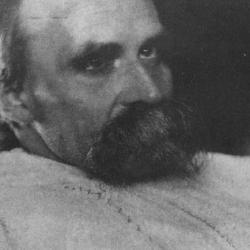A decade ago, self-proclaimed “born-again pagan” and New Yorker-proclaimed “Sage of Yale Law” Anthony Kronman responded to critics in Comment with this:
What did Nietzsche mean when he said, “God is dead?” He meant that the idea of a world beyond this one, from whose vantage point everything here “down below” is to be judged, is no longer a credible idea—even though many people continue to believe it. . . . Nihilism is what results from the separation of time and eternity, when eternity is no longer available and all that is left is a realm of pointless, empty transience. If nihilism is to be overcome, time and eternity must be rejoined, but not in the way that Christianity joins them—as separate realms connected by a Savior and a church. They must be rejoined in a more intimate way—as the form and moving matter of one world.
In short, “Nietzsche’s doctrine of the eternal return is an attempt to put time and eternity back together again, after their long Abrahamic separation. This is a promising possibility, more attractive to me than either resignation or revival.”
This represents a thin, thoroughly Nietzchean distortion of Christianity. Perhaps the Christianity Nietzsche encountered had connected the “separate realms” of eternity and time with a Savior and a church, but that’s hardly characteristic of the Christian tradition as a whole. It certainly doesn’t reflect the biblical Abrahamic faith, which is trust in a promise of land and seed, a promise that Abraham will be, in Paul’s phrase, “heir of the world.” Christianity insists that the eternal kingdom is precisely this world transfigured into the kingdom of God (to quote Schmemann, the anti-Nietzschean).











